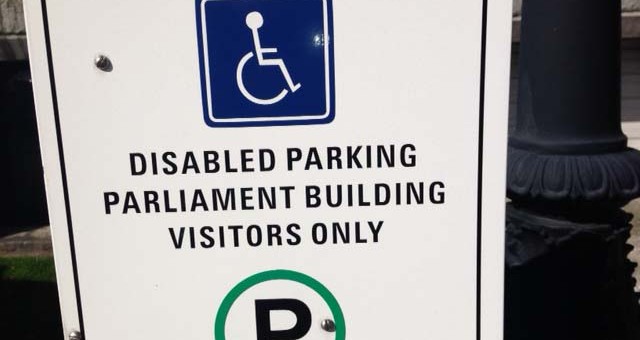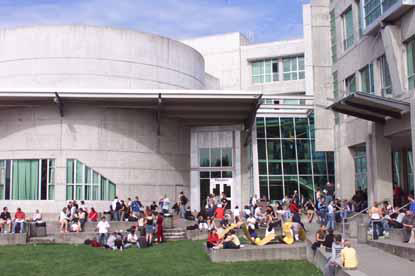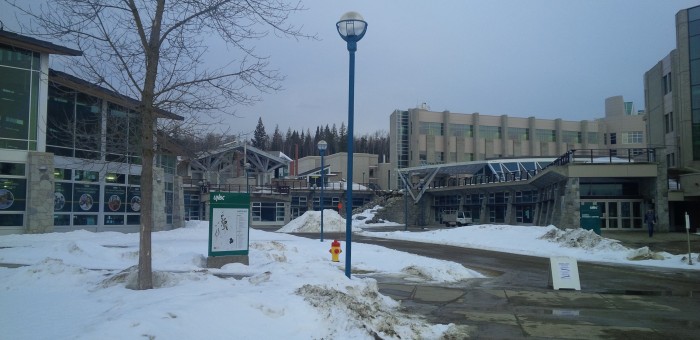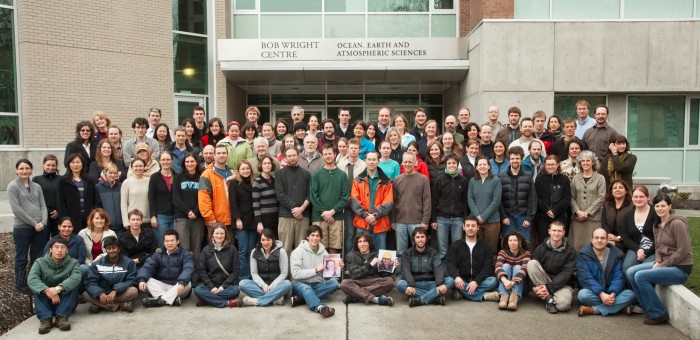Advanced Education
A Private Members Bill to Protect RDSPs and RESPs from Creditors
Today in the legislature I introduced a private members Bill M208 – Court Order Enforcement Amendment Act, 2016. The bill adds Registered Disability Savings Plans (RDSPs) and Registered Education Savings Plans (RESPs) to the list of plans protected under the act.
If a person files for bankruptcy in B.C., their RRSPs are protected from being seized by creditors. However, the same protection does not exist for RESPs or for RDSPs. A child should not have their education investment seized due to misfortune that befalls their parents. Alberta has protected RESPs; we should follow suit.
I asked the Minister of Justice about this problem in question period two years ago. At the time, the Minister said that it was an important issue and that she’d be glad to work with me to move it forward. Yet two years have now passed and still nothing has changed. Seeing as I haven’t seen any meaningful progress from the government on this simple legislative change, I decided to offer them a possible solution.
Text of Bill Introduction
A. Weaver: I move a bill, intituled Court Order Enforcement Amendment Act, 2016, of which notice has been given in my name on the order paper, be introduced and read a first time now.
Motion approved.
A.Weaver: Registered Retirement Savings Plans (known as RRSPs) were first introduced federally in 1957. Legislation enabling Registered Retirement Income Funds (known as RRIFs) was subsequently brought forward in the late 1970’s.
RRSPs and RRIFs are protected in this, and most other provinces, from creditors in the case of personal bankruptcy. Protecting these funds provides a glimmer of hope that individuals undergoing bankruptcy will not be destitute in their old age.
In 2008 Federal legislation was passed to allow for the creation of Registered Disability Savings Plans (RDSPs). The RDSP is a federal, tax-deferred, long-term savings plan for people with disabilities who want to save for the future.
Unfortunately, under our outdated Court Order Enforcement Act, 1996, RDSPs are not listed as a registered plan in BC’s legislation and are therefore not exempt from creditor protection. Should an individual with an RDSP go into debt, their savings in the RDSP will not be protected from seizure. The same is true for Registered Education Savings Plans (known as RESPs).
Recognizing that a child should not have their education investment seized due to a misfortune that befalls their parents, the Alberta government also passed legislation two years ago protecting from creditors.
This Bill amends the Court Order Enforcement Amendment Act to ensure that RESPs and RDSPs are protected by law from creditors.
I move that the bill be placed on the orders of the day for second reading at the next sitting of the House after today.
Motion approved.
BILL M208, Court Order Enforcement Amendment Act, 2016, introduced, read a first time and ordered to be placed on orders of the day for second reading at the next sitting of the House after today.
Video of Bill Introduction
Bill M205: Post-Secondary Sexual Violence Policies Act
Today in the legislature I introduced Bill M205: Post-Secondary Sexual Violence Policies Act. This bill, based on similar legislation in Ontario, aims to address the pervasive occurrence of sexualized violence plaguing universities, colleges and other post-secondary institutions in British Columbia. It creates a legal responsibility for them to develop and maintain policies that would work to prevent the occurrences of sexual violence and provide support for victims. The act would allow university- and college-specific policies to be developed that would meet the needs of students, including education and protection, while working to create a safe environment for all students to come forward to report a sexual assault.
The preponderance of sexualized violence on the campuses of post-secondary institutions affects all of us. It’s time for our government to stand up and say that enough is enough. With your support and collective voice we will be able to improve the safety of post-secondary experiences for everyone.
Below is the text and video of my introduction of the bill. If needed, the contact information for sexual assault support and crisis centers throughout British Columbia are also listed below.
Text of Bill Introduction
BILL M205 — POST-SECONDARY SEXUAL
VIOLENCE POLICIES ACT, 2016
A. Weaver: I move introduction of a bill intituled Post-Secondary Sexual Violence Policies Act, 2016.
Motion approved.
A. Weaver: It is estimated that one in four female university students will be sexually assaulted during the relatively short amount of time they spend on campus.
If that number seems startling, then keep in mind that when the University of Ottawa recently did a student survey on the issue, 44 percent of female students experienced some form of sexual violence or unwanted sexual touching. Within our province, we’ve heard of numerous assaults that have taken place over the last few weeks, with a variety of different responses.
It is with this in mind that I introduce the Post-Secondary Sexual Violence Policies Act. This bill requires colleges and universities to have sexual violence policies that set out the process that will apply when incidents and complaints of sexual violence are reported. It is critical that we establish a legal requirement for our post-secondary institutions to have sexual violence policies that educate, protect and support our students. This legislation would actively involve students in the development of these policies and ensure that universities are adequately reporting and responding to incidences of sexual assault.
I move that this bill be placed on the orders of the day for second reading at the next sitting of the House after today.
Bill M205, Post-Secondary Sexual Violence Policies Act, 2016, introduced, read a first time and ordered to be placed on orders of the day for second reading at the next sitting of the House after today.
Video of my introduction of the bill in the legislature today.
Video of Bill Introduction
Online and Phone-in Resources
- VictimLinkBC is a toll-free, confidential, multilingual multilingual telephone service available across B.C. and the Yukon 24 hours a day, 7 days a week. It provides information and referral services to all victims of crime and immediate crisis support to victims of family and sexual violence, including victims of human trafficking exploited for labour or sexual services, 1-800-563-0808
- 24 hour sexual assault crisis and information line, based in Victoria, 250–383-3232
- Qmunity Resource Centre provides counselling, resources, programs and peer support to the lesbian, gay, transgender, bisexual communities. (604) 684-5307.
- Youth In BC, provides an online chat program to connect victims with support. Available noon to 1am in BC and the Yukon.
City Specific Support and Crisis Centers
Victoria Sexual Assault Centre
3060 Cedar Hill Road #201
(250) 383-3232
http://vsac.ca/
Kamloops Sexual Assault Counselling Center
235 First Avenue #601
(250) 372-0179
http://www.ksacc.ca/
Women Against Violence Against Women
Vancouver, BC V6J 5C2
(604) 255-6344
http://www.wavaw.ca/
B C Society for Male Survivors of Sexual Abuse
3126 W Broadway
(604) 682-6482
http://bc-malesurvivors.com/
Prince George Sexual Assault Centre
5130N Nechako Rd.
(250) 564-8302
https://clbc.cioc.ca/record/CLB0654
SOS Society
Prince George, 193 Quebec St
(250) 564-8302
http://www.sossociety.net/
Post-Secondary Sexual Violence Policies Act
Media Release: March 8th, 2016
Andrew Weaver Tables Post-Secondary Sexual Violence Policies Act
For Immediate Release
Victoria, B.C. – Today at the B.C. Legislature, Andrew Weaver, MLA for Oak Bay – Gordon Head and Leader of the B.C. Green Party, tabled the Post-Secondary Sexual Violence Policies Act, a bill that aims to address the pervasive occurrence of sexualized violence plaguing universities and colleges in British Columbia.
“It is estimated that one in four female university students will be sexually assaulted during the relatively short amount of time they spend on campus,” said Andrew Weaver. “It is unacceptable that we are not taking clearer steps as a Province to help create a safe environment for our students.”
Sexualized violence is an issue that impacts all genders and all ages. Being young and female, however, are the biggest risk factors for being sexually assaulted.
“The opportunity to succeed and thrive in university shouldn’t hinge on whether or not you are young, female and statistically likely to experience sexual violence,” said Weaver. “A staggering number of bright young women pursuing their academic ambitions are forced to deal with the threat of sexualized violence. It’s time for our government and universities to stand up and say enough is enough.”
Weaver brought forward the Post-Secondary Sexual Violence Policies Act to create a legal responsibility for universities and colleges in British Columbia to develop and maintain policies that would provide education for students, support for victims, and work to prevent the occurrences of sexual violence. The act would allow University specific policies to be developed that would meet the needs of students, including education and protection, while working to create a safe environment for students to come forward to report a sexual assault.
“The reality is that it is women who are most vulnerable at post-secondary institutions to being sexually assaulted or harassed, and that there simply isn’t the capacity for adequate prevention and support,” said Weaver. “While I chose International Women’s Day to table this bill, this is a societal issue and one that affects people of all gender identities. I hope our work will improve the safety of post-secondary experiences for everyone.”
-30-
Media Contact
Mat Wright – Press Secretary Andrew Weaver MLA
1 250 216 3382
mat.wright@leg.bc.ca
Ensuring Independence of University Boards — Bill M202
Today in the legislature I introduced a private member’s bill entitled Bill M202 University Amendment Act, 2016. The purpose of this bill is to halt the creeping government interference in university governance, an issue I have previously raised in the past.
In a recent article in the Georgia Strait entitled Arvind Gupta, Andrew Weaver, and the future of B.C.’s Universities, author Charlie Smith threw out a challenge. It was a challenge that I accepted.
The independence of a University Board is critical. The purpose of a university is to educate people who can critically assess information to allow them to participate in an informed manner in a democracy. It’s a place that allows for innovation and creativity to flourish. It’s not a place for government to impose a top down imposition of its ideology. Unfortunately, under existing legislation the government has the potential to interfere in ways that could undermine that autonomy.
The potential of political interference is unacceptable for our institutions of higher learning. My hope is that the government takes my suggestions for solving this issue seriously and takes action on this issue immediately to preserve the independence of our academic institutions.
Below I reproduce the text and video of the speech I gave as I introduced the bill. I also include the accompanying media release.
Text of my Speech
A. Weaver: It’s also with great pleasure that I move introduction of a bill intituled University Amendment Act, 2016.
Motion approved.
A. Weaver: I’m sure members are aware of the two significant controversies that have plagued two of our universities recently: the controversy between the UBC board and the past president of UBC, Dr. Arvind Gupta, and the recent controversy concerning the decision to appoint James Moore as chancellor of UNBC.
In both these instances, the conflict arose because of the decisions the board made or in how the board acted. While the role of a board of governors is essential to the functioning of a university, the governance of a university must also be independent of any potential real or apparent political interference. It’s with this in mind that I bring this bill forward today.
This bill amends the University Act to ensure that appointees from the Lieutenant-Governor-in-Council cannot unilaterally set the tone and direction of a university board through having a majority of votes and that university boards cannot unilaterally appoint a chancellor for their university.
This bill will bring British Columbia to the same university governance standards employed by much of the rest of Canada.
I move that this bill be placed on the orders of the day for second reading at the next sitting of the House after today.
———
Bill M202, University Amendment Act, 2016, introduced, read a first time and ordered to be placed on orders of the day for second reading at the next sitting of the House after today.
Video of my Speech
Media Release
Media Release: February 11, 2016
Andrew Weaver – University Boards Need More Independence
For Immediate Release
Victoria B.C. – Andrew Weaver, Leader of the BC Green Party and MLA for Oak Bay-Gordon Head, is offering concrete steps for how the BC Government can remove the potential of political interference in University Boards.
“The independence of a University Board is critical. The purpose of a university is to educate people who can critically assess information to allow them to participate in an informed manner in a democracy. It’s a place that allows for innovation and creativity to flourish. It’s not a place for government to impose a top down imposition of its ideology” says Weaver. “Unfortunately, under current legislation the government has the potential to interfere in ways that could undermine that autonomy.”
Today Andrew Weaver introduced a bill in the BC Legislature that, if passed, would remove the ability of a Board of Governors to appoint a Chancellor, and that would reduce the number of provincial appointees on University Boards.
“It is highly troubling to me that the majority of University Board members at universities in our province are appointed by the provincial government. Equally troubling is that the University Board of Governors appoints a university’s Chancellor.”
In 2008 the BC Liberals amended the University Act to allow the University Board of Governors to appoint a university’s Chancellor. The BC NDP started this trend in 1997 by allowing the Board of Governors at the Technical University of BC to appoint its Chancellor.
“At UBC we’ve seen the Board of Governors interfering in a behind-the-scenes way to push out the University’s President,” says Weaver. “At UNBC we’ve witnessed the highly controversial appointment of a Chancellor. Even the Board itself was highly divided on the appointment – it only passed by one vote.”
The main concern with what has occurred at UBC and UNBC is that politically appointed members on both University Boards may have taken intrusive actions into the direction that these universities are taking. This in turn has huge implications for the governance of universities across the province.
“The potential of political interference is unacceptable for our institutions of higher learning. My hope is that the government takes my suggestions for solving this issue seriously and takes action on this issue immediately to preserve the independence of our academic institutions.”
Media Contact
Mat Wright – Press Secretary Andrew Weaver MLA
1 250 216 3382
mat.wright@leg.bc.ca
Bill 41 — Miscellaneous Statutes Amendment Act (No. 3), 2015
Today at Committee Stage I asked two questions seeking clarification from the Minister of Advanced Education as to the type of fees that are collected by Student Societies and whether or not these are what he had in mind with respect to the new legislation. More details are available in my second reading comments.
The Minister’s answer was quite clear that “From our perspective, what [student societies] do with the funds they collect under [the student society] fee heading is up to them. We have no intention of getting involved in what they do, particularly at the student society level.” This suggests that a way to get around some of the concerns still being raised would be to roll as much a possible into the student society fees.
Below is the exchange I had with the Minister.
Question 1
A. Weaver: I’m just trying to seek clarification from the minister specifically with respect to the University of Victoria and, presumably, other universities as to the type of fees that are collected and whether or not these are what he had in mind.
If you’re a student going to the University of Victoria, you’re required to pay student fees for the UVic Students Society, fees set through earlier referenda; the UVSS renovation fee, set through referendum for the renovations of the student buildings; a UVic athletics fee only for on-campus people, again set through referendum at a time back in history; a UVSS bus pass, also set through referendum; UVSS dental plan and UVSS extended health plan, both of which you are able to opt out — as, I believe, is the case for every university I’ve talked to — if you have other dental plans existing.
Now, what I’m asking here is if these are the type of fees, in light of the information I gave, that the minister believes would be required to be paid anyway by a student who withdrew from the university student society? And I have a small follow-up on one of these after that answer.
Answer
Hon. A. Wilkinson: The member lists a number of fees, and it’s a bit of a sample of the range of fees found at our 25 institutions, the Justice Institute being the one organization that does not have a student society and therefore has no appropriate fees in this category.
The opt-out arrangements for at least two of the fees indicate that of the somewhere between 100 and 200 different fees we are addressing here, that will require consultation with the student societies and the universities and colleges involved to ascertain which ones should be put into which category.
Question 2
A. Weaver: Just a quick follow-up here. The UVic Student Society fee is one that students are required to pay to keep the ongoing governance of the UVic Student Society.
That student society fee subset monies to organizations like the UVSS Food Bank and Free Store, the anti-violence project, the Society for Students with a Disability, the Native Students Union, UVSS Students of Colour Collective and the UVic Pride collective, amongst others.
My specific question here is: if the students are paying one fee, that is the UVic Students Society fee, and the students society makes decisions within that on how those funds are spent, is the minister talking about having them have each and every subset of their overall student fee being approved by the ministry? Or is it just the one fee?
One of the overarching concerns is that micromanagement, at the level of the government, will be to look at each and every decision being made by a student society in a student society fee. Could the minister please provide clarification on that?
Answer
Hon. A. Wilkinson: I hope that the remarks I’m about to make will be reassuring to the student societies and to the members opposite. The anticipation is that there’ll be no change in the structure, content, nature or collection of student society fees through this process. The student societies assess fees, which are widely variable around the province. From our perspective, what they do with the funds they collect under that fee heading is up to them. We have no intention of getting involved in what they do, particularly at the student society level.
I thought we had made this reasonably clear in the conference call on November 2, but if there is any remaining anxiety amongst the student societies and unions or amongst the members opposite, I hope this has succeeded in allaying those fears.
Video of the Exchange








